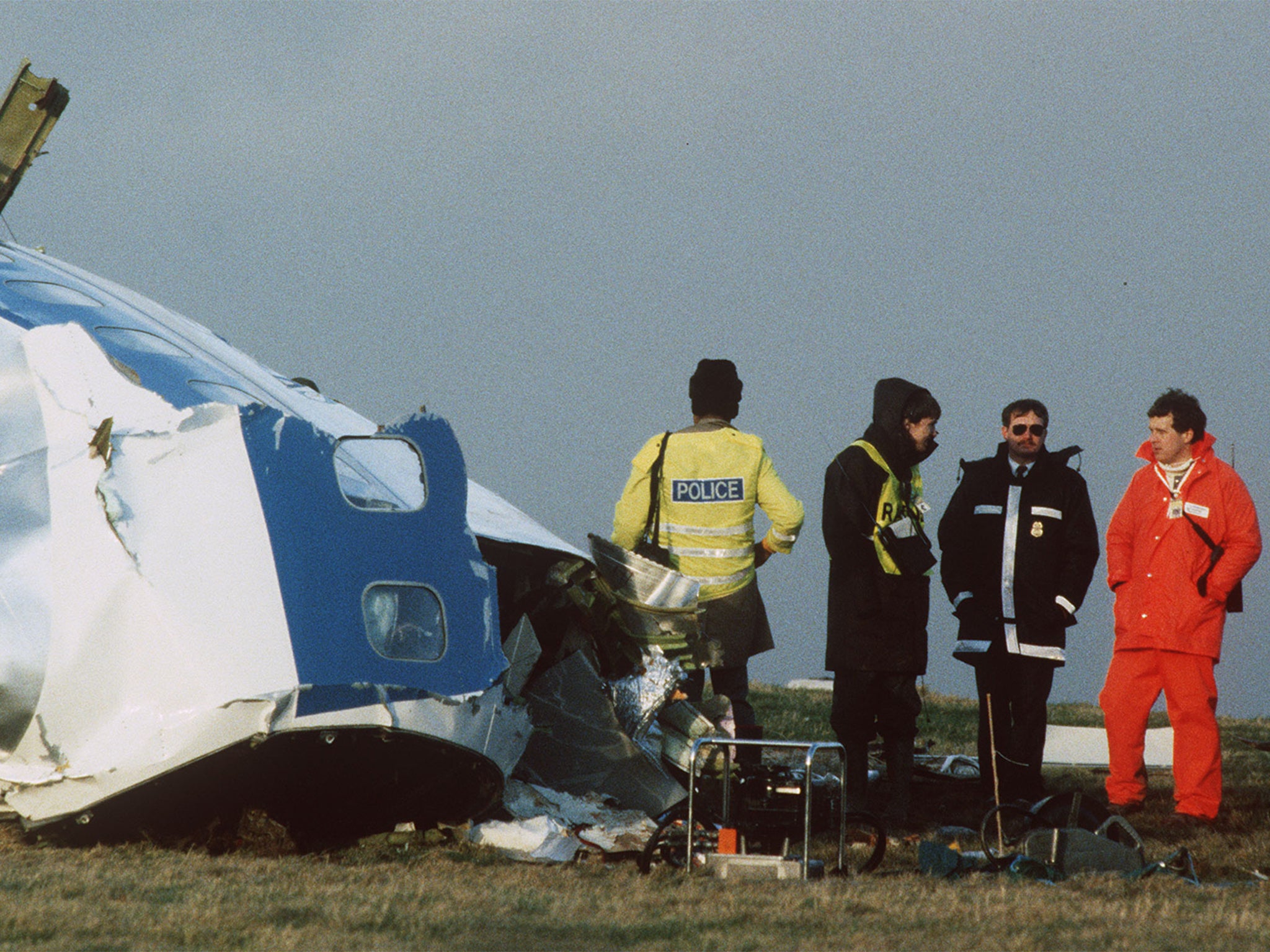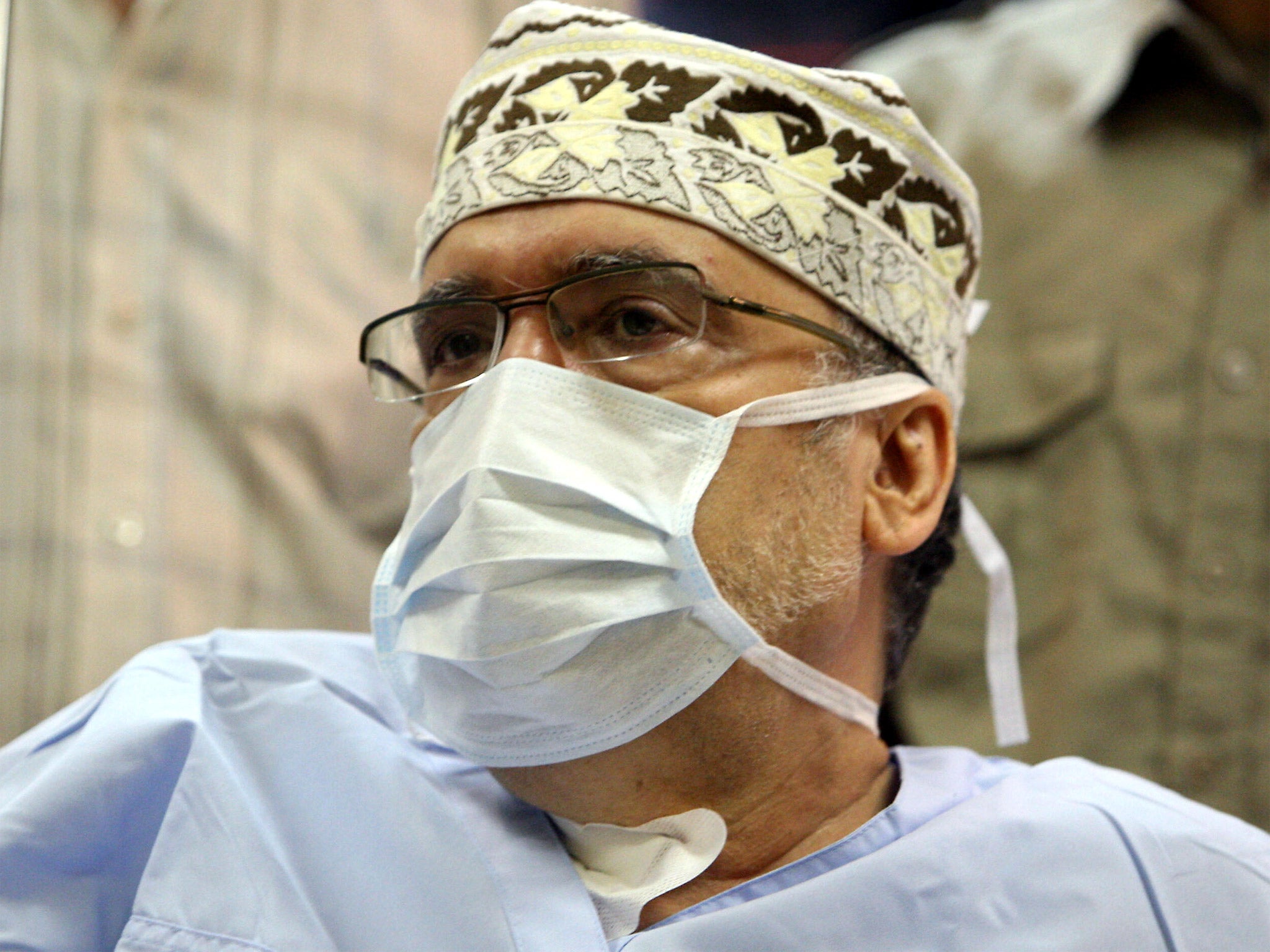Lockerbie bombing: This ‘new’ evidence on the atrocity offers no new answers
Diplomatic Channels: What has emerged is highly questionable


Your support helps us to tell the story
From reproductive rights to climate change to Big Tech, The Independent is on the ground when the story is developing. Whether it's investigating the financials of Elon Musk's pro-Trump PAC or producing our latest documentary, 'The A Word', which shines a light on the American women fighting for reproductive rights, we know how important it is to parse out the facts from the messaging.
At such a critical moment in US history, we need reporters on the ground. Your donation allows us to keep sending journalists to speak to both sides of the story.
The Independent is trusted by Americans across the entire political spectrum. And unlike many other quality news outlets, we choose not to lock Americans out of our reporting and analysis with paywalls. We believe quality journalism should be available to everyone, paid for by those who can afford it.
Your support makes all the difference.The news that new evidence has been uncovered about the Lockerbie bombing should have raised hopes that the truth about this terrible atrocity may at last be revealed and, at the same time, a shameful miscarriage of justice corrected.
But that is not the case. Little has emerged that is new, and what has emerged is highly questionable. The avenue being taken by the British and American authorities continues to be predicated on the basis that the Libyan Abdelbaset al-Megrahi was responsible for the deaths of 270 people, on the plane and at the crash site. But many of those touched by the events believe that his conviction was unjust, and that the authorities are covering up their mistakes.
I saw Megrahi in the winter of 2011 in Tripoli, where he had been sent from his prison in Scotland after being diagnosed with terminal cancer. He was lying in bed attached to a drip, oxygen mask on his skeletal face, drifting in and out of consciousness. The medicine he needed had been plundered by looters in the chaotic aftermath of the fall of the Gaddafi regime; the doctors treating him had fled.

The vengeful pursuit of Megrahi, the feeling that he had escaped justice by failing to die in a cell, persisted among those who were adamant that he was guilty. He was faking his illness, they claimed; there were demands that the post-revolutionary Libyan government should arrest and extradite him.
Megrahi died a few months later. Members of some of the bereaved families, such as Dr Jim Swire, who lost his daughter, Flora, in the bombing, have long been convinced that his conviction was unsafe. Their appeal to clear his name was turned down by the Appeal Court in Edinburgh three months ago because the law was “not designed to give relatives of victims a right to proceed in an appeal for their own or the public’s interest”.
The campaigners had just cause to have misgivings about what happened to Megrahi. I reported from the specially constituted Scottish court at Camp Zeist in the Netherlands where he and his fellow Libyan defendant, Lamin Khalifa Fhimah, were tried. The two men were charged with what amounted to joint enterprise, yet only Megrahi was found guilty. The prosecution evidence was circumstantial and, at times, contradictory. Key prosecution witnesses were shaky under cross-examination. The evidence of a supposedly prime “CIA intelligence asset”, Abdul Majid Giaka, codename “Puzzle Piece”, who turned up in a Shirley Bassey wig in an attempt to hide his identity, was widely viewed as risible. It emerged later that important evidence had not been passed to the defence lawyers.
There was scathing criticism from international lawyers about the proceedings. Professor Hans Köchler, a UN appointed legal adviser, described them as “ inconsistent, arbitrary and a spectacular miscarriage of justice”. The Scottish Criminal Cases Review Commission identified six grounds where it believed “a miscarriage of justice may have occurred”.
So what are the new leads being pursued by the US and Britain? They focus on Abdullah al-Senussi, who was both Muammar Gaddafi’s chief of intelligence and also his brother-in-law, and on Mohammed Masud, a regime agent. Both are being held in prison, on unrelated charges, in Tripoli, by one of Libya’s two rival administrations.
But, in fact, both men have been scrutinised by Lockerbie investigators in the past. Scottish police announced in 2013 that they were looking at information that Masud was in Malta, where prosecutors claimed the bomb was placed on the flight, at the same time as Megrahi. But Fhimah, cleared by the Camp Zeist court, was in Malta as well.
Robert Black, a law professor born in Lockerbie who played a key role in organising the Camp Zeist proceedings, later became convinced that there had been a miscarriage of justice. He warned in 2013 that British officials were trying to retrospectively buttress the case against Megrahi by implicating Masud. “It looks like the Crown Office is trying to shore up the Malta connection, which is pretty weak,” he said.
It looks like the Crown Office is trying to shore up the Malta connection, which is pretty weak
Some of the impetus for the new inquiry has come from an American documentary, My Brother’s Bomber, by Ken Dornstein, whose brother was among the victims. Most of the information for this came from a former Libyan agent, Musbah Eter, who has implicated both Megrahi and Masud.
Eter, however, has had a chequered life. He was convicted of the bombing of the La Belle nightclub in Berlin in 1986, an attack which prompted Ronald Reagan to bomb Libya, with some of the warplanes flying from British bases. A German TV investigation subsequently revealed that Eter was a CIA “asset”. We do not know why it took him more than two decades to come forward with the Lockerbie information, or what influence his relationship with US intelligence played in this.
Might Masud and Senussi end up in another Camp Zeist-type trial over Lockerbie? One reason for the Gaddafi regime allowing the extradition of Megrahi and Fhimah was that it was seeking rapprochement with the West at the time. The current Islamist government in Tripoli is not recognised by the West. During my recent visit to Libya I discovered some in the administration who were very keen for that recognition and the better relations, including investment, it may bring.
So, handing over the two men to Britain and America may not be an impossible scenario in the future. Senussi has already been sentenced to death on other charges and may, indeed, welcome being sent abroad. We may yet see another CIA operative, Eter this time, doing a court turn in a Shirley Bassey wig. It will not, however, bring us nearer to the truth about the Lockerbie massacre.
Join our commenting forum
Join thought-provoking conversations, follow other Independent readers and see their replies
Comments